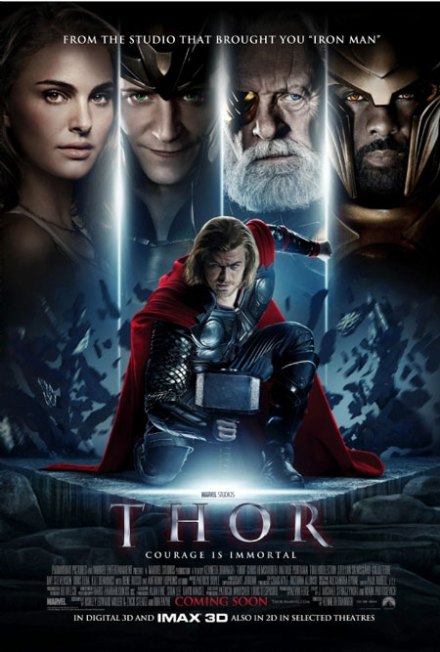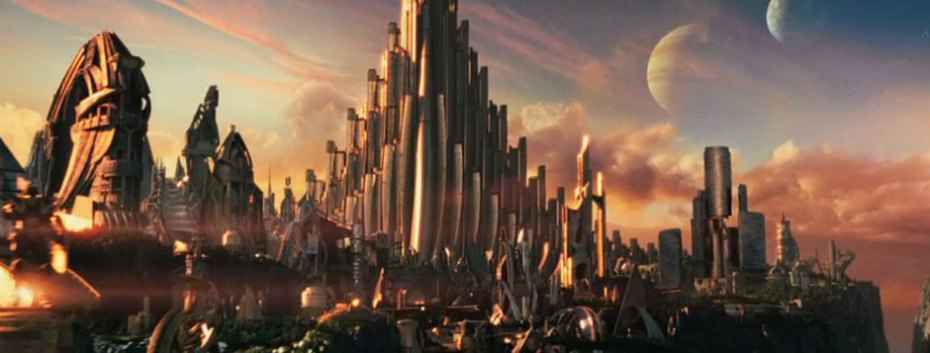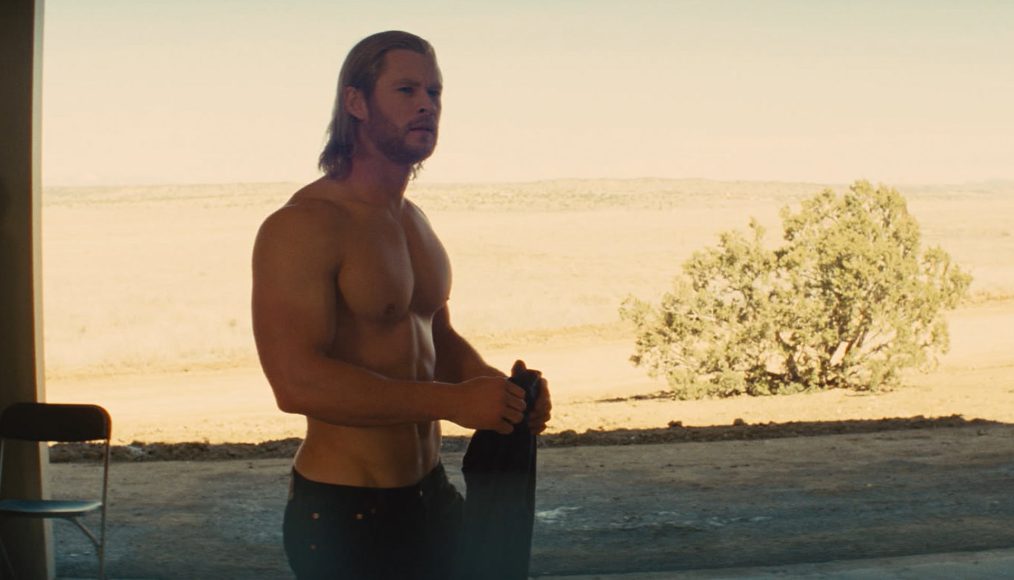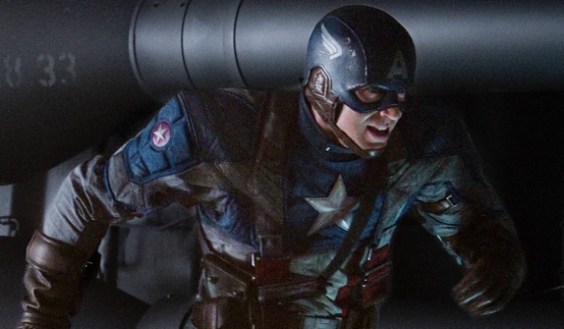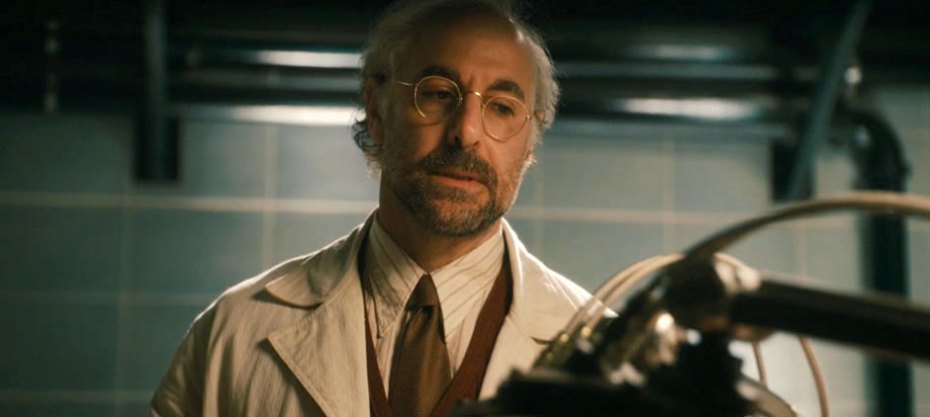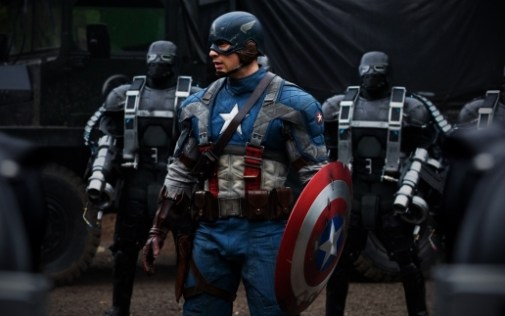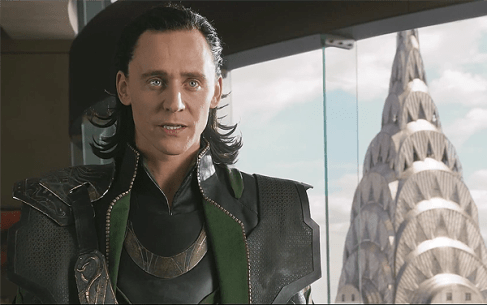 Today’s Cinema Adventure was originally published in
Today’s Cinema Adventure was originally published in
Created in 1966 by Marvel founder Stan Lee and artist/author Jack Kirby, Black Panther was the first black superhero in mainstream comics. It’s took 50 years – and the rise of Marvel to the level of multi-media powerhouse – for him to make his big screen debut in 2016’s “Captain America: Civil War.”
Two years later, he has a movie of his own, and it’s a lot more than just another spin-off; it’s a watershed moment in the cultural narrative.
It’s not that its story is anything unexpected; on the surface, the film largely adheres to familiar formula. T’Challa (Chadwick Boseman) is heir to the throne of Wakanda, a fictional African nation which is secretly the world’s most technologically-advanced society. Part of his role as ruler is to assume the mantle of Black Panther, a warrior-protector who defends the country with the help of superhuman powers bestowed through ancient tribal rituals. His transition to the throne is challenged by Erik Killmonger (Michael P. Jordan), who seeks to use peaceful Wakanda’s superior resources to dominate the rest of the world. It’s up to T’Challa and a handful of loyal supporters to defeat him and regain control over the country’s fate.
This hero-versus-villain scenario – though executed with the cleverness, style, and technical expertise that has become the well-established standard for these Marvel films – is typical fodder for blockbuster entertainment, which aims for thrills and not much more; but “Black Panther” has its eyes on a higher prize.
Thanks to the screenplay by director Ryan Coogler and Joe Robert Cole, “Black Panther” is the vehicle for a wide-ranging array of cultural messaging. This is no safe, middle-of-the-road adventure; Coogler and Cole have made a barely-concealed political allegory in which Wakanda becomes a stand-in for (among other things) America itself. Struggling between its self-preservationist isolationism and its role in the global community, it becomes a nation divided; its leadership, plagued by past failures and uncertain of future direction, is usurped by an outsider with an extreme ideology who seeks to subdue or silence any opposition to his agenda; and its citizens must choose between patriotic duty or resistance against the ominous course set by the new regime. Add to this the fact that the resistance is largely driven by smart, empowered females, and the parallels are hard to miss.
More significant than the Trumpian overtones, yet profoundly complementary to them, are the ways in which “Black Panther” embraces and celebrates black culture. It’s reflected in every aspect of the film, from the colorful costume and scenic designs, which incorporate heritage and history into its imagination of an Afro-centric futurism, to the exploration of social themes that not only recur throughout but form the very basis of the story’s central conflict. T’Challa’s struggle is not just with an arch-villain; it’s a conflict between opposing ideas of social justice. Do we right the wrongs of the past with education and leadership, or do the subjugated strike down their oppressors and change the world by force? This is, of course, a superhero fantasy, so it’s no spoiler to say that the movie doesn’t end with an all-out race war; still, it’s significant to note that “Black Panther” does not oversimplify these questions, and that it takes pains to present all sides of the discussion in a sympathetic light.
That all of this comes through so clearly is a testament to the talents of the movie’s creators and cast. Director Coogler navigates his way through the dense trappings of the sci-fi setting without ever losing track of the story’s heart and soul – or its big ideas. Boseman brings the charisma and fire he displayed in Black Panther’s “Civil War” debut, and he deepens the character with a vulnerability that makes him a hero even more to be admired. Jordan’s turn as Killmonger gives us a complex, human antagonist who earns our empathy, instead of the kind of caricatured “bad guy” that would turn the movie into a one-sided parade of tropes.
The rest of the cast is no less important, and no less impressive. Lupita Nyong’o, as Nakia, is no mere love interest, but a force to be reckoned with. Danai Gurira, as Okoye, general of Panther’s bodyguard, is a fierce and imposing presence whose wisdom is every bit as formidable as her physical prowess. Letitia Wright, as Shuri, T’Challa’s sister and chief technical mastermind is impish and irreverent, providing a hip and youthful energy while establishing herself as a supremely capable and self-sufficient heroine in her own right. This is a trio of proud, smart, compassionate women that could fully support a movie of their own.
Representing the older generation are Angela Bassett and Forest Whittaker, both regal and indomitable as T’Challa’s mother and advisor, respectively. Martin Freeman reprises his “Civil War” role as CIA agent Ross, using his much-loved deadpan befuddlement to great effect; though essentially serving as a “token white” character, his likable persona serves as an important reminder that unity in the cause of justice is not defined by race. Andy Serkis, the movie’s only other significant white actor, gives a gleefully colorful performance as the secondary villain, Ulysses Klaue.
All these stellar contributions blend together into the whole; no one element outshines any other, and “Black Panther” shines all the brighter for it.
As good as this film is, though, its importance does not lie in its quality.
The movie’s opening weekend ticket sales in North America outstripped anticipated figures; its global take for the weekend shattered myths about the overseas performance of movies featuring non-white actors. It had the highest gross for a February opening in history, and the fifth highest of all time. Black audiences turned up at theatres in droves, sometimes as part of school and church groups, often dressed in clothing celebrating their cultural heritage. There has even been a campaign to register voters at theaters showing the film.
The impact of such a film – one that fills an oft-lamented gap for mainstream movies featuring people of color – should have been a no-brainer. For a major studio release to be so unapologetically “black” is a major step forward that is long overdue. To be sure, Marvel’s film comes in the wake of such surprise successes as “Moonlight” and “Get Out,” and feels connected to last summer’s “Wonder Woman,” which delivered a similar shock to the system, as well as Pixar’s Latino-themed “Coco.”
Even so, “Black Panther” feels like the crest of a wave. The Hollywood industry, like any other business, is motivated by money; this movie has made a lot of that, already, and will certainly make much, much more. The studios will receive that message, loud and clear, and if history is any indication, they will clamor to jump on the gravy train.
Hopefully, at long last, that will mean more movies about and by non-whites.
Whether or not it will also encourage a more inclusive atmosphere for other unrepresented groups – like Latino, Asian, or LGBT audiences – remains to be seen.



























